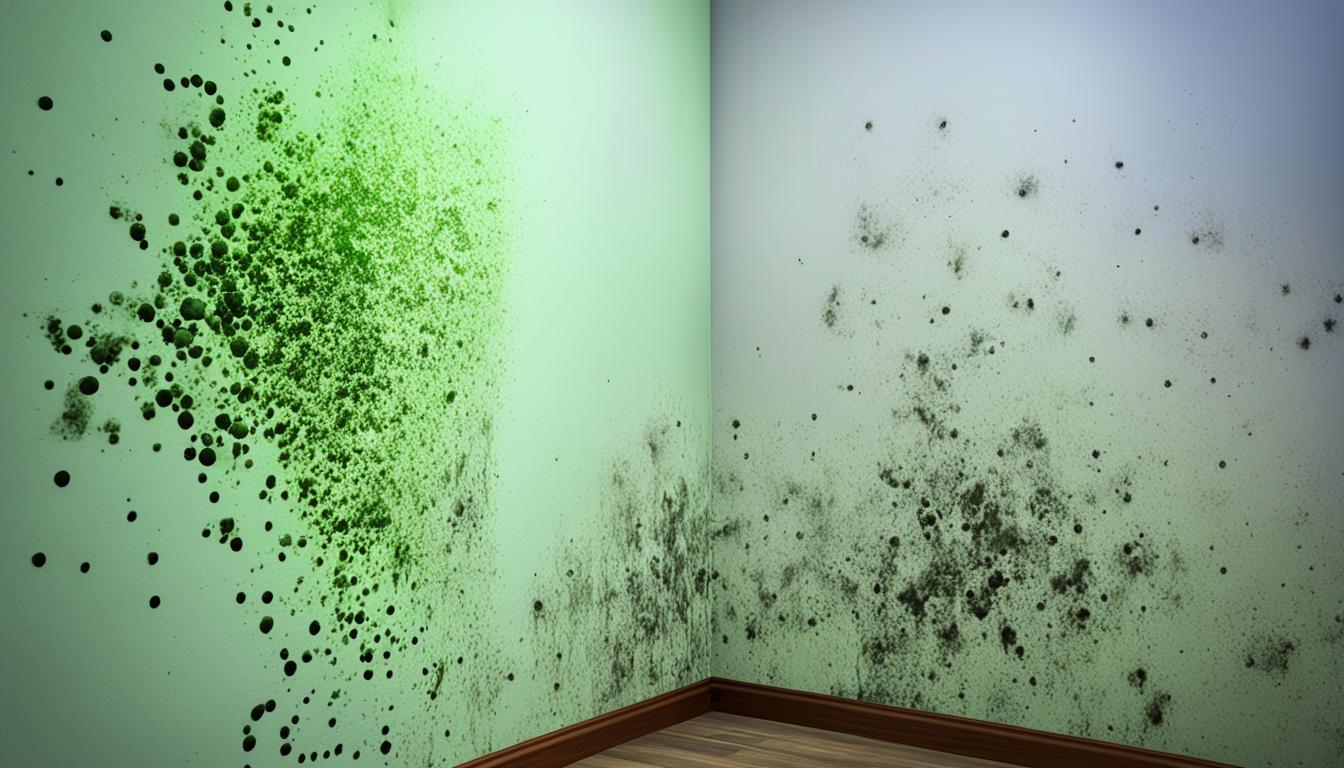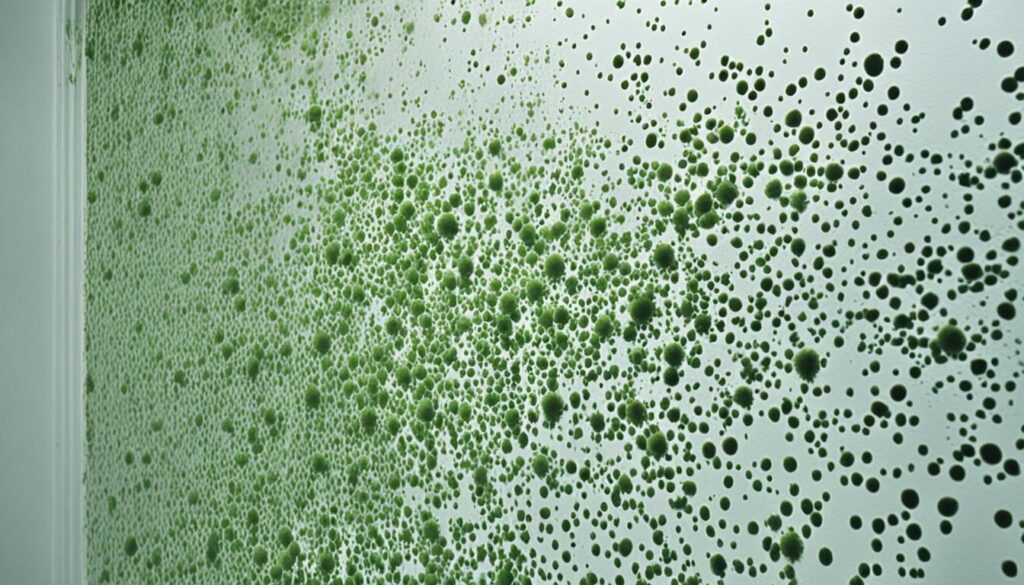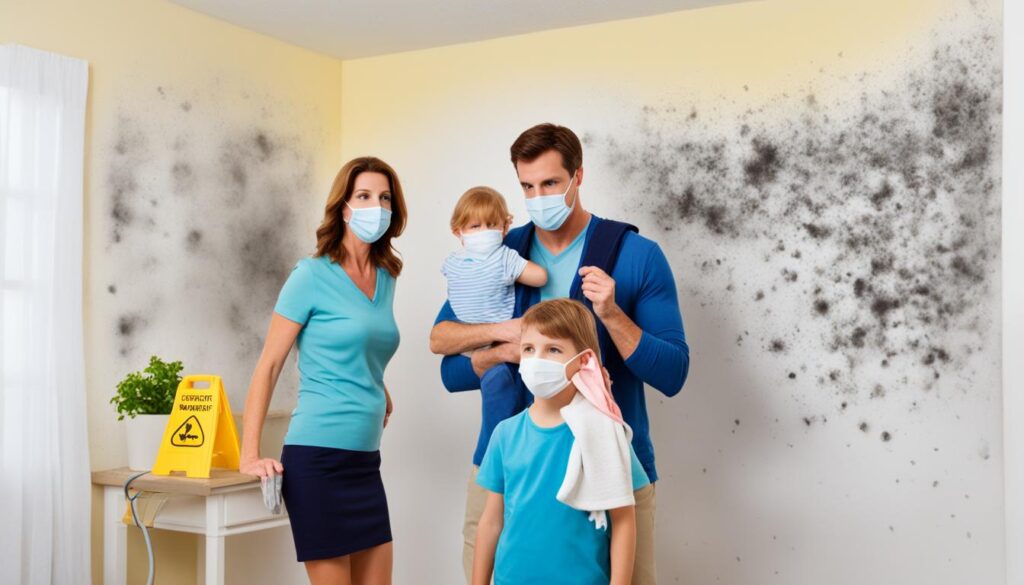
Health Risks of Mold in House and Prevention Tips
Mold is a common problem that can have serious health implications for individuals living in mold-infested houses. Not only can it damage the structure of your home, but it can also pose significant risks to your well-being. Understanding the side effects of mold in the house and taking preventative measures is crucial for maintaining a safe living environment.
Exposure to mold can lead to various health issues, particularly for those with respiratory conditions or weakened immune systems. The spores released by mold can trigger allergic reactions, causing symptoms such as coughing, sneezing, and wheezing. Prolonged exposure can worsen existing respiratory conditions and lead to more severe symptoms like asthma attacks or chronic bronchitis.
In addition to respiratory problems, mold exposure can also cause skin irritations, eye irritation, headaches, and fatigue. Some individuals may even experience more serious health issues when exposed to toxic molds, such as black mold, which can produce mycotoxins that are harmful to human health.
To protect yourself and your loved ones from the negative consequences of mold exposure, it is important to take proactive measures. Here are some key prevention tips to keep in mind:
- Maintain proper ventilation throughout your home to minimize moisture buildup.
- Address any leaks or water damage immediately to prevent mold growth.
- Control humidity levels by using dehumidifiers in damp areas.
- Clean and dry any damp or wet surfaces within 24 to 48 hours.
- Regularly inspect and clean areas prone to mold, such as bathrooms, kitchens, and basements.
- Use mold-resistant materials when renovating or building your home.
- Consider hiring professionals for mold assessments and remediation services.
Key Takeaways:
- Mold in the house can have detrimental effects on human health, particularly for those with respiratory conditions or weakened immune systems.
- Exposure to mold can lead to respiratory issues, allergic reactions, skin irritations, and other symptoms.
- Prevention is key to combat mold growth. Proper ventilation, moisture control, and regular maintenance are essential.
- Seeking professional assistance for mold assessments and remediation can help ensure a safe living environment.
- Early detection and swift action are crucial to prevent further health complications associated with mold exposure.
Understanding the Side Effects of Mold in House
When it comes to the side effects of mold in your house, it’s crucial to recognize the potential health risks that can arise from exposure. Mold is more than just an unsightly nuisance; it can have serious implications for your respiratory system and overall well-being.
Mold spores, which are tiny microscopic particles released by mold, can trigger a range of respiratory issues when inhaled. Individuals with pre-existing respiratory conditions such as asthma or allergies are particularly susceptible to these side effects. Exposure to mold can exacerbate symptoms, leading to difficulty breathing, coughing, wheezing, and chest tightness.
Allergies are another common side effect of mold in the house. For those with mold allergies, exposure can result in sneezing, runny nose, itchy eyes, and skin irritation. These allergic reactions can be persistent and cause discomfort that affects daily life.
“Exposure to mold can have detrimental effects on our health, especially for individuals with compromised immune systems. It is essential to take immediate action to prevent further health complications.”
In addition to respiratory issues and allergies, mold exposure has been linked to various other symptoms. These can include headaches, fatigue, dizziness, and even depression or anxiety in severe cases. It’s important to note that the severity and range of side effects may vary depending on factors such as individual sensitivity, duration of exposure, and the specific type of mold present in the house.
Early Detection and Swift Action
Recognizing the side effects of mold in your house is the first step toward safeguarding your health. Early detection and swift action are crucial in preventing further health complications. If you suspect mold growth in your home, it is important to address the issue promptly.
Consider hiring a professional mold assessment service to conduct a thorough inspection. They can identify areas of mold growth, assess the extent of the problem, and recommend appropriate remediation measures. Taking immediate action can help mitigate the side effects and prevent the mold from spreading further.

By understanding the potential side effects of mold in your house and taking swift action to address the problem, you can ensure a healthier living environment for you and your family.
Preventing Mold Growth and Ensuring Safety
To maintain a safe living environment, it is essential to take proactive measures to prevent mold growth in your home. Mold not only poses health risks but can also lead to structural damage and costly repairs. By following these practical tips and strategies, you can effectively combat mold and ensure the well-being of your household.
Moisture Control
Moisture is the primary factor that contributes to mold growth. To prevent moisture buildup in your home, it is crucial to address any leaks, water spills, or plumbing issues promptly. Fix any leaks in pipes, roofs, or windows, and regularly inspect your home for signs of water damage.
Tip: Keep a close eye on areas prone to moisture, such as bathrooms, kitchens, basements, and crawl spaces. Ensure proper ventilation and consider using dehumidifiers in humid areas.
Proper Ventilation
Proper airflow and ventilation play a significant role in mold prevention. Ensure that your home is well-ventilated to reduce moisture levels and prevent condensation. Open windows and use exhaust fans in kitchens, bathrooms, and laundry areas to improve air circulation.
Tip: When cooking, showering, or drying clothes, use exhaust fans and open windows to allow moisture to escape. Remember to keep vents clear of obstructions.
Regular Maintenance
Maintaining a clean and well-maintained home is crucial in preventing mold growth. Regularly check and clean gutters, downspouts, and roof drainage to ensure proper water flow. Clean and dry any damp or wet surfaces promptly, including walls, floors, and furniture.
Tip: Routinely inspect and clean air conditioning units, filters, and ducts to prevent the spread of mold spores. Vacuum and dust your home regularly to reduce the accumulation of dust and mold allergens.
Professional Mold Assessments and Remediation
While prevention is key, it is also important to seek professional assistance for mold assessments and remediation. Professional mold inspectors can identify hidden mold growth, assess the severity of the infestation, and provide effective remediation strategies.
When hiring mold remediation services, ensure that the company is certified, experienced, and follows industry best practices. Professional remediation will not only remove existing mold but also address the root causes of moisture and prevent future growth.

| Prevention Tips | |
|---|---|
| 1 | Control moisture and fix leaks promptly |
| 2 | Ensure proper ventilation and airflow |
| 3 | Regularly clean and maintain your home |
| 4 | Seek professional mold assessments and remediation |
Conclusion
Throughout this article, we have explored the side effects of mold in the house and the importance of taking proactive measures to prevent its growth. Mold can pose serious health risks, including respiratory issues and allergic reactions, which can have a significant impact on the well-being of individuals living in a mold-infested environment.
To ensure the safety and well-being of your household, it is crucial to prioritize mold prevention. By controlling moisture levels, improving ventilation, and conducting regular maintenance, you can effectively combat mold growth and create a safe living space for you and your loved ones.
If you suspect mold in your home or need professional assistance, contacting experts such as Fix Mold Miami at 305-465-6653 is highly recommended. Their team of experienced professionals can provide mold assessments and remediation services to address any mold-related issues, protecting your health and preserving the integrity of your home.




